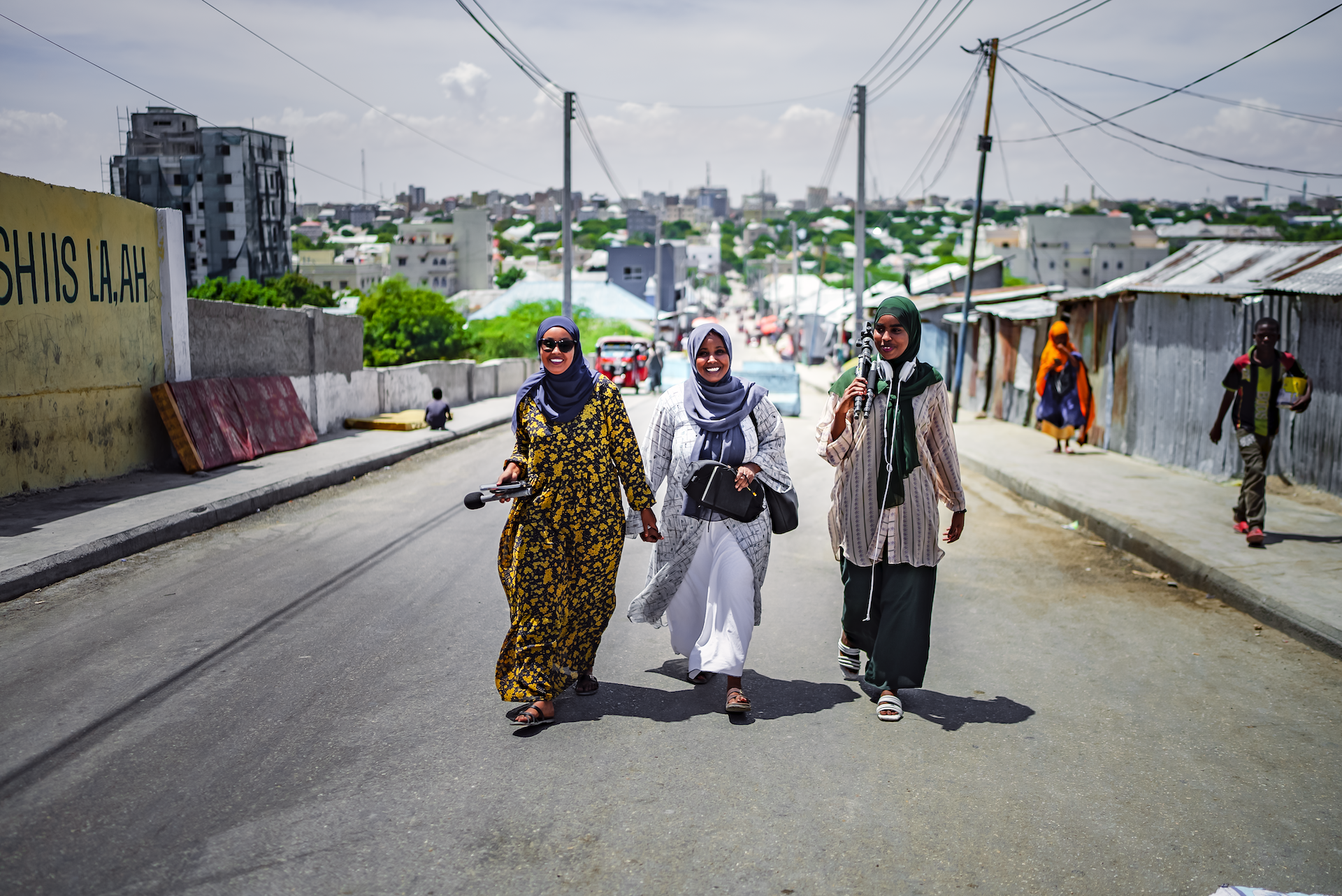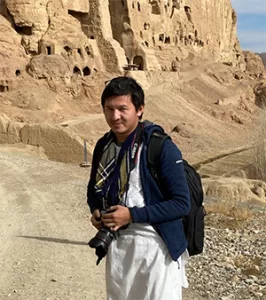9 Aug 2024 | Africa, Algeria, Asia and Pacific, Europe and Central Asia, News, Russia, Taiwan
Boxer Imane Khelif broke down in tears last week following her victory over Hungary’s Luca Anna Hamori in the welterweight quarter final at the 2024 Paris Olympics guaranteed her a medal. It was an emotional moment for the Algerian not just in terms of her sporting achievement but because she had spent the past week embroiled in a misinformation storm.
Khelif – who is now guaranteed at least a silver medal after her victory over Thailand’s Janjaem Suwannapheng – was labelled as transgender in several viral social media posts, an inaccuracy which was then parroted by some news organisations and politicians. Khelif is neither transgender nor identifies as intersex.
Much of the recent viral outrage at Khelif’s Olympic success stemmed from a claim by the Russian-led International Boxing Association in 2023 that she and fellow boxer Lin Yu-ting of Taiwan had failed certain gender tests. These tests have never been published and are, as of today, unverified. The International Olympic Committee (IOC) revoked the IBA ruling, stating the decision was “arbitrary”, “sudden” and “taken without any proper procedure”.
The disqualification resulting from the IBA tests also apparently came after Khelif beat a Russian prospect at an IBA event.
There have been mixed reports over the content of the apparently secret gender testing, with IBA president Umar Kremlev claiming in a chaotic press conference that the pair had high levels of testosterone while the organisation’s chief executive alleged these were actually chromosome tests. Even beyond the lack of cohesion and clarity, the issue with sex testing itself is that every version invites criticism when scrutinised because most sports are organised according to a strict male-female binary, while nature does not follow such a binary – sex is more complex than that.
The IBA does not oversee Olympic boxing. Their credibility was seriously damaged in recent years following longstanding accusations of a lack of transparency and poor governance. They were finally suspended as boxing’s governing body and stripped of involvement in the Olympic games. Neither the IOC nor World Boxing endorse the ruling made by the IBA.
The IBA has close links to Vladimir Putin and Russia, a country which has been involved in massive misinformation campaigns around the Olympic games because their athletes were not allowed to compete under the Russian flag.
According to AP, Russian bots have been responsible for amplifying the Khelif controversy. The story was soon picked up by voices with huge followings, including billionaire X owner Elon Musk. It travelled beyond social media, with several news organisations and politicians wrongfully asserting that Khelif is transgender. US-based newspaper The Boston Globe were forced to issue an apology for labelling Khelif as transgender in one of their headlines. Fox News also labelled her as a transgender boxer live on air, while host Ainsley Earhardt wrongly described her as someone who identifies as a trans woman. Republican presidential candidate Donald Trump repeated these false claims.
The dangers of misinformation have been well-documented in the age of social media but are as relevant as ever in sewing division. Fake news spreading on social media sites is currently fuelling a number of political agendas and was cited as one of the catalysts for the far-right Islamophobic and anti-immigration riots in the UK.
BBC disinformation correspondent Marianna Spring, who deals with such viral mistruths on a daily basis, told Index in February that the unregulated spread of misinformation can cause real-world harm, so it’s crucial in a free society to call it out.
“If you are being repeatedly hounded or abused online, your freedom of expression is compromised,” she explained. “What I’m doing is exposing the harm these extremist truths can cause rather than policing what people can say.”
Khelif herself has been subjected to hate and abuse on a huge scale, as has Yu-ting, who is also competing at the games and is guaranteed a medal. IOC president Thomas Bach condemned the narrative surrounding the two athletes, calling it “politically motivated”.
“All this hate speech, with this aggression and abuse, and fuelled by this agenda, is totally unacceptable,” he said during a news briefing.
Even more worryingly, these allegations could have had serious consequences when you consider that in Algeria – Khelif’s home country – being transgender is illegal.
There are legitimate questions in a free society to be raised around gender in sport and the IOC’s Framework on Fairness, Inclusion and Non-discrimination on the basis of gender identity and sex variations was criticised by some international sports medicine bodies in 2022. No one should be silenced for asking these questions or having the conversation.
But the heat around Khelif has not been about asking questions. Instead the issue here is one of jumping to conclusions. What could have been a heartwarming story of a woman finding sporting success against all odds became a cautionary tale of the dangers of misinformation and the speed at which unchecked information or false claims can be spread on social media platforms, endangering people’s lives and distorting reality. Who wins the gold medal here? Russia.
6 Sep 2023 | Czech Republic, France, Greece, Hungary, Italy
Sofia Mandilara really likes her job. As a reporter for the Greek news agency Amna, she is "often at the forefront of important events", she said. "Through us, people find out what is going on in our country." But not all that goes on in Greece is reported. This is because Amna belongs to the Greek state and is subject to the office of Prime Minister Kyriakos Mitsotakis. Anyone who reports critically on his conservative government is censored, the 38-year-old said.
A similar situation exists at the Italian state broadcaster, Rai, which plays a major role in shaping public opinion. It is increasingly under the influence of Italy’s right-wing populist government. Immediately after taking office in October 2022, Prime Minister Giorgia Meloni filled all management positions with her followers. The two previous governments did the same, but none as radically as Meloni. Prominent reporters left and even high-profile journalist and anti-Mafia author Roberto Saviano’s show was cancelled after he tangled with Meloni. Positive reports about Meloni’s government, meanwhile, account for around 70% of all political news on Rai stations, according to the media research institute Osservatorio di Pavia.
Journalists at the Journal du Dimanche, France’s leading Sunday newspaper, have also suffered a radical change of regime. In the spring, Vivendi, owned by billionaire Vincent Bolloré, got the go-ahead to buy the publishing giant Lagardère, including the JDD. Bolloré publicly denies any political interest. But as with his acquisitions of CNews in 2016 and the magazine Paris Match last year, the buy-out was followed by a sharp turn in the editorial orientation of the JDD towards the far right.
State officials who demand censorship, party functionaries who misuse public broadcasters for their propaganda and billionaires who buy media to propagate their own political interests - what was long known only in Viktor Orbán’s Hungary - is spreading across Europe. The creeping decline in media freedom and pluralism has been documented for years by the Centre for Media Freedom at the European University of Florence, an EU-funded project. There is now "an alarming level of risk to media pluralism in all European countries", researchers wrote in their annual report in June.
This puts Europe in a "desperate situation", said Věra Jourová, the EU Commission vice-president for values and transparency. The Czech Commissioner has personal experience of life without a free press. "I lived under communism, that was uncontrolled power - and unchallengeable power. This should not happen in any EU member state," she said in an interview with Investigate Europe, a co-operative of journalists from different European countries. Media are "the ones who keep politicians under control. If we want the media to fulfil its important role in democracy, we have to introduce a European safety net." That is why she is pushing to implement a landmark EU law "to protect media pluralism and independence", which would set legally binding standards to preserve press freedom in all EU member states.
She and her colleagues introduced the bill in September 2022. Among other things, it provides that: public service media must report "impartially" and their leadership positions must be "determined in a transparent, open and non-discriminatory procedure"; the allocation of state funds to media for advertising and other purposes must be made "according to transparent, objective, proportionate and non-discriminatory criteria"; governments and media companies must ensure that the responsible "editors are free to make individual editorial decisions"; owners and managers of media companies must disclose "actual or potential conflicts of interest" that could affect reporting; and the enforcement of journalists to reveal their sources, including through the use of spyware, must be prohibited.
All of this seems self-evident for democratic states and yet it met with massive resistance from not only Hungary and Poland, but also Austria and Germany. They argued the proposal is overreaching, "with reference to the cultural sovereignty of the member states", according to minutes from the legislative negotiations in the EU Council, obtained by Investigate Europe. The four governments wanted a directive rather than a legally binding regulation, which would allow the governments to undermine the bill.
In Germany, media supervision is the task of regional states. On their behalf, Heike Raab from the state government of Rhineland-Palatinate, led the negotiations in the EU Council. The EU was acting as a "competence hoover in an area that was expressly reserved for the member states in the treaties", Raab argued, saying the law would be an "encroachment on publishers’ freedom" in line with the respective lobby. If publishers are no longer allowed to dictate the content of their media alone, this would "destroy the freedom of the press", the Federal Association of Newspaper Publishers declared. The European Publishers Association claimed that the EU proposal was in fact a "media unfreedom act". However, Raab and the publishers’ lobby failed to present any practical proposals on how to stop the attacks on editorial freedom.
Such opposition has so far proved largely unsuccessful. Although several controversial amendments to the law have been put forward (most notably when a majority of EU governments backed a change to allow the possible use of spyware in the name of national security), the key proposals of Jourová and her colleagues were adopted in June by most EU governments. If, as expected, the parliament also gives its approval at the beginning of October, the law could come into force early next year – and trigger a small revolution in the European media system. At least that is what Jourová hopes.
The direct influence on public service media by way of appointment of politically affiliated managers, as seen in Greece and Italy, for example, would not be compatible with the new law. “The state must not interfere in editorial decisions," Jourová said. If a member state does not comply, the Commission could open proceedings against the government for violation of the EU treaties. And if the violations continue, this could "lead to very serious financial penalties from the European Court of Justice.”
Journalists themselves could also sue governments or private media owners in national courts against censorship or surveillance on their part, the Commissioner explained.
It is questionable, however, whether this can help reverse the decline of media diversity in the right-wing populist-ruled countries. The Hungarian and Polish government are already accepting the blocking of billions in payments from EU funds because they violate the principles of the rule of law with their political control of the courts. So why should they fear further rulings by EU judges?
Viktor Orbán’s regime has for years engineered a "creeping economic strangulation" of independent media in Hungary, says journalist Zsolt Kerner of the online magazine 24.hu. The government withdrew all state advertising contracts for independent media and then pressured commercial advertisers to do the same. Today, advertising revenues only go to media loyal to the government. 24.hu survived only thanks to an economically strong and independent investor. The rest either had to close or were taken over by those connected to Orbán. This would all become illegal with the planned regulation because EU law trumps national legislation. But Kerner and his colleagues "doubt whether it will do any good in our country." After all, the government has "many good lawyers".
"Maybe Hungary is a bit immune now," said Commissioner Jourová. But there, too, the government will "sooner or later feel the political impact". An “independent European media board", including media experts from all 27 EU states, is planned under the new regulation. While the board can decide by majority vote only on assessments without legal consequences, Jourová expects that countries "which the board certifies as restricting media freedom" will "lose their international reputation, for which most governments are very sensitive.”
This could well put pressure on the right-wing nationalists in Poland, thinks Roman Imielski, deputy head of Gazeta Wyborcza, the country’s last major independent newspaper. Prime Minister Mateusz Morawiecki’s government has also turned public television and the national news agency into "a Russian-style propaganda machine" that brands all critics as "traitors to the nation and conspirators", Imielski said. But if Poland looks bad to the US government, for example, "that puts pressure on it", as happened when the government tried to sell the government-critical TVN station, owned by a US group, to a Polish buyer. Under pressure from Washington, the Polish president vetoed the corresponding law in 2021.
When or even if Jourová’s grand plan actually becomes law is still unknown. After the parliamentary adoption scheduled for the beginning of October, its representatives still have to agree on a common text with the Council. As mentioned, most EU governments want to reverse the planned ban on the use of surveillance software against journalists and explicitly allow it in cases of danger "to national security". Article six, which obliges media owners to respect "editorial freedom", is also highly controversial. Member states, including Germany, want to weaken this provision considerably by only granting this freedom "within the editorial line" set by media owners. If successful, the law would fail at a crucial point.
“The problem is not media concentration in itself, the problem is that it gets into the wrong hands,” said Gad Lerner, a columnist at the still independent Il Fatto Quotidiano, who worked for La Repubblica until it was sold. “More and more entrepreneurs with a core business in other industries are buying newspapers, TV or radio to give visibility to the politicians on whom they depend for their real business."
"Of course, we don’t want rich people to buy media to influence politics. But we are not here to micromanage how the newsrooms should be organised,” Jourová said, pointing to the need for civil society and journalists to help push for stronger editorial freedoms.
The Greek journalist Sofia Mandilara, who works at the state news agency, has already given a starting signal for this. With the help of the trade union, she filed a public complaint against the censorship of statements critical of the government in one of her articles and - to her surprise - was allowed to write another article on the subject. Since then, "at least they always ask me when they want to change my texts," she said with a laugh.
This is a modified version of an article that first appeared on Investigate Europe here



 Mortaza Behboudi (Afghanistan/France)
Mortaza Behboudi (Afghanistan/France)